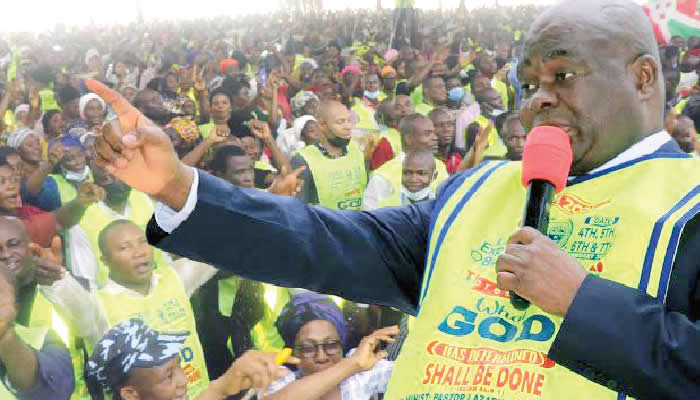The Lagos State chapter of the Christian Association of Nigeria (CAN) has taken a firm stance concerning testimony-sharing practices within the Lord’s Chosen Charismatic Revival Ministries. This intervention comes in response to a highly publicized account from one of the church’s members, who claimed that an elderly man providentially appeared to her during an examination to provide answers to questions. This sensational testimony not only raised eyebrows but also prompted criticism from the Christian community, particularly because it was alleged that the individual shared the purported answers with another church member from the Mountain of Fire and Miracles Ministries. Such claims can stir controversy, leading to debates about the nature of faith and testimonies within religious settings.
Bishop Stephen Adegbite, the Chairman of Lagos CAN, openly condemned this particular testimony, branding it as an “utter fabrication.” His remarks highlight a concern for the integrity of testimonies being shared in church settings. Adegbite emphasized the importance of regulating how members convey their experiences and reflections, especially those of a miraculous nature. In response to this incident, he summoned the church’s leadership for a meeting to discuss the implications of such testimonies and to establish new guidelines for presenting experiences during congregational gatherings.
The meeting took place at the CAN secretariat in Alausa, Ikeja, Lagos, and was attended by representatives from the Lord’s Chosen church along with leaders from five major blocs of CAN. The gathering constituted over 100 attendees, reflecting a unified stance against unsubstantiated claims that could mislead believers or damage the reputation of Christianity. This collective engagement underscores the organization’s commitment to maintaining credibility and ensuring that the testimonies shared by its members align with truth and reason.
During the meeting, it was emphasized that church leaders have a responsibility to vet testimonies prior to public sharing. Adegbite noted that members should be encouraged to consider the implications of their testimonies and the possible misinterpretations that could arise. The directive made it clear that outrageous claims that may not be suitable for public consumption would be discouraged to prevent misunderstandings or potential scandals that could tarnish the image of the church and the broader Christian community.
Bishop Adegbite articulated a shared viewpoint among the attendees, where a consensus was formed to reject any testimonies that appear unreasonable or misleading. He affirmed that while the Christian faith recognizes genuine miracles and divine interventions, it is imperative for the teachings and experiences shared within churches to reflect truthfulness. This commitment to accountability speaks to a broader concern about the authenticity of miraculous claims, which can sometimes lead believers astray or incite skepticism among the broader public.
Ultimately, what transpired during this meeting signals a proactive approach by the Lagos State CAN to ensure that all testimonies presented by its members abide by standards of reasonableness and integrity. It reflects a desire to communicate the genuine nature of faith experiences without compromising the credibility of the church. In doing so, CAN aims not only to reaffirm the legitimacy of miracles but also to cultivate an atmosphere of discernment and wisdom in public expressions of faith, thereby fostering a stronger and more united Christian community.


